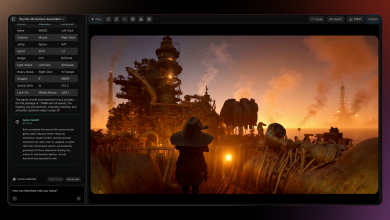
Healthcare today is navigating a whirlwind of change. From digital transformation and staffing shortages to the shift toward value-based care, the challenges are complex—and they’re not slowing down. In this environment, leadership isn’t just about titles or authority; it’s about influence, empathy, and the ability to guide teams through uncertainty.
This case study examines how Johns Hopkins Medicine (JHM) is cultivating a leadership culture that fuels innovation, resilience, and accountability. By embedding leadership development into every corner of its organization, JHM offers a compelling blueprint for preparing healthcare leaders in an AI-enabled world (Johns Hopkins Medicine, 2023).
Leadership Philosophy and Organizational Culture
At JHM, leadership is considered a shared responsibility rather than a top-down directive. Governance brings together voices from hospitals, research centers, and academic institutions to make decisions collaboratively
The Leadership Development Program (LDP) embodies this philosophy. Leaders at every level are trained to manage change, inspire teams, and foster innovation while remaining aligned with the institution’s academic and clinical mission (Johns Hopkins Medicine, 2023).
Emotional Intelligence and Connection with Teams
Effective healthcare leadership requires emotional intelligence and authentic engagement. At JHM, programs like Leading Change in a Complex World equip leaders with relational leadership skills, focusing on psychological safety, empathy, and active listening. Leaders are trained to foster inclusive conversation and trust across diverse, interdisciplinary teams.
During the COVID-19 pandemic, these principles were put into action. Leadership maintained transparent communication, prioritized mental health support, and brought together cross-disciplinary voices to guide critical decisions. This approach enhanced trust, reduced burnout, and reinforced a culture of compassion and transparency (Greenberg, Docherty, Gnanapragasam, & Wessely, 2020).
Governance and Leadership in Nonprofit Healthcare
As a nonprofit academic medical system, JHM balances clinical excellence, community impact, and long-term sustainability. The institution’s top leaders—the Dean, CEO, and hospital presidents—collaborate to align academic vision with operational strategy, ensuring that strategic priorities reflect clinical realities and ethical considerations
JHM’s shared leadership model allows executives, clinicians, and researchers to contribute to decision-making. This approach creates a culture of responsibility and empowerment while maintaining organizational integrity
Leading Teams in Complex Healthcare Systems
Healthcare delivery at JHM depends on multidisciplinary, coordinated teamwork. Team-based leadership is reinforced through TeamSTEPPS (Team Strategies and Tools to Enhance Performance and Patient Safety), a nationally recognized program that improves communication and collaboration across clinical settings (Clancy & Tornberg, 2020).
Regular team simulations, debriefings, and leadership rounds strengthen collective responsibility and reinforce leadership distributed throughout all organizational levels—from bedside providers to system executives.
Leading Organizational Change
JHM demonstrates excellence in leading change through initiatives like precision medicine and AI-enabled clinical decision support systems (Noorbakhsh-Sabet, N. 2019).
Change initiatives follow principles similar to Kotter’s model: establishing urgency, building coalitions, communicating vision, and embedding new practices into culture. Success depends not just on technology but on cultivating a culture of adaptability, transparency, and shared purpose.
Developing Future Leaders
The Office of Talent Management and Organization Development at JHM is pivotal in building leadership pipelines. The Emerging Leaders Program (ELP) identifies high-potential individuals and pairs them with senior mentors, fostering value transmission, ethical grounding, and institutional loyalty (Johns Hopkins Medicine, 2023).
Diversity, equity, and inclusion are integral to leadership development. Cohorts reflect the populations served, enhancing cultural competence and patient. Tools like 360-degree assessments and individualized coaching sessions reinforce self-awareness and adaptive learning, hallmarks of emotionally intelligent leadership.
Discussion
JHM illustrates that developing future healthcare leaders requires a strategic blend of formal programs, mentorship, experiential learning, and cultural alignment. Leadership development is embedded in daily practice rather than confined to executive training.
By combining shared governance, diversity, and emotional intelligence, JHM builds a resilient and future-ready leadership pipeline. Leadership excellence emerges not from individual charisma, but from institutional systems that empower people to lead collectively
Conclusion
Developing the next generation of healthcare leaders demands more than technical or administrative skills. Emotional intelligence, ethical integrity, and a deep commitment to service are essential. Johns Hopkins Medicine demonstrates how an integrated approach to leadership development can strengthen healthcare organizations’ capacity to innovate and adapt (Johns Hopkins Medicine, 2023).
By fostering shared leadership, inclusivity, and continuous growth, JHM provides a replicable model for healthcare institutions preparing compassionate, visionary leaders for the future.
References
- Johns Hopkins Medicine. (2023, December 4). JHM Executive Leadership Development Program closes out a transformative year. Hub@Work.
https://hub.jhu.edu/at-work/2023/12/04/jhm-executive-leadership-development-program/ - Greenberg, N., Docherty, M., Gnanapragasam, S., & Wessely, S. (2020, March 26). Managing the mental health challenges faced by healthcare workers during COVID-19 pandemic. BMJ, 368, m1211. https://doi.org/10.1136/bmj.m1211
- Routhieaux, R. L. (2015). Shared leadership and its implications for nonprofit leadership. Journal of Nonprofit Education and Leadership, 5(3), 139–152. https://js.sagamorepub.com/index.php/jnel/article/download/6529/5155/20974
- Clancy, C. M., & Tornberg, D. N. (2020). TeamSTEPPS: Assuring optimal teamwork in clinical settings. The Joint Commission Journal on Quality and Patient Safety, 46(5), 243–249.
- Noorbakhsh-Sabet, N. (2019). Artificial intelligence transforms the future of health care. Journal of Medical Systems, 43(8), 1–10. https://doi.org/10.1007/s10916-019-1453-3




